The World Through My Eyes: Juliana
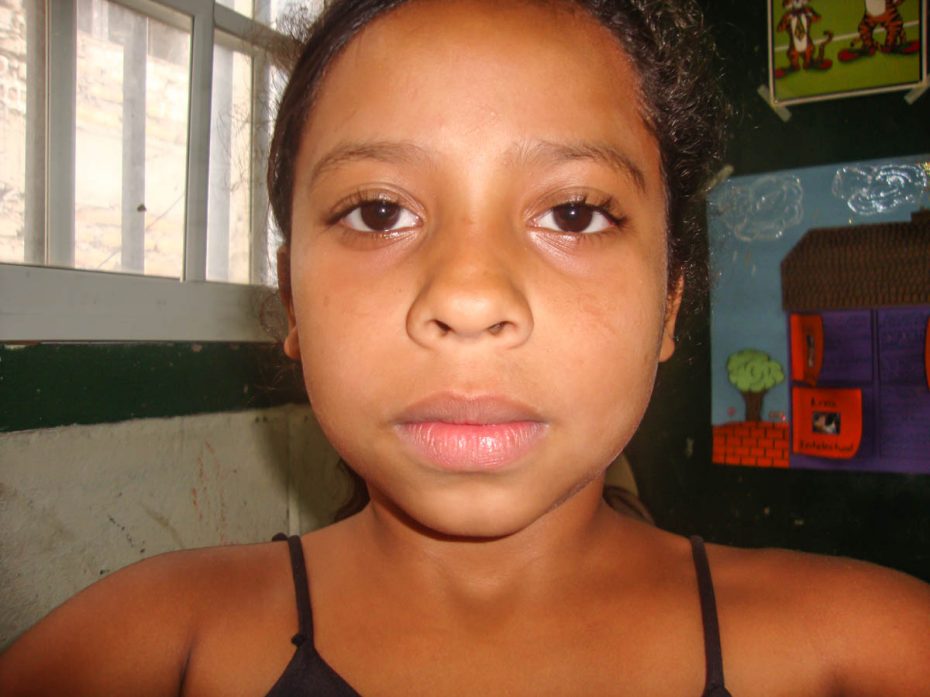
This was a fun experience. I was experimenting with the camera and decided to take one photo of me. I forgot to smile, but I liked this photo anyway.
Continue Reading ›Living in Honduras: A Day in the Life of Alejandro
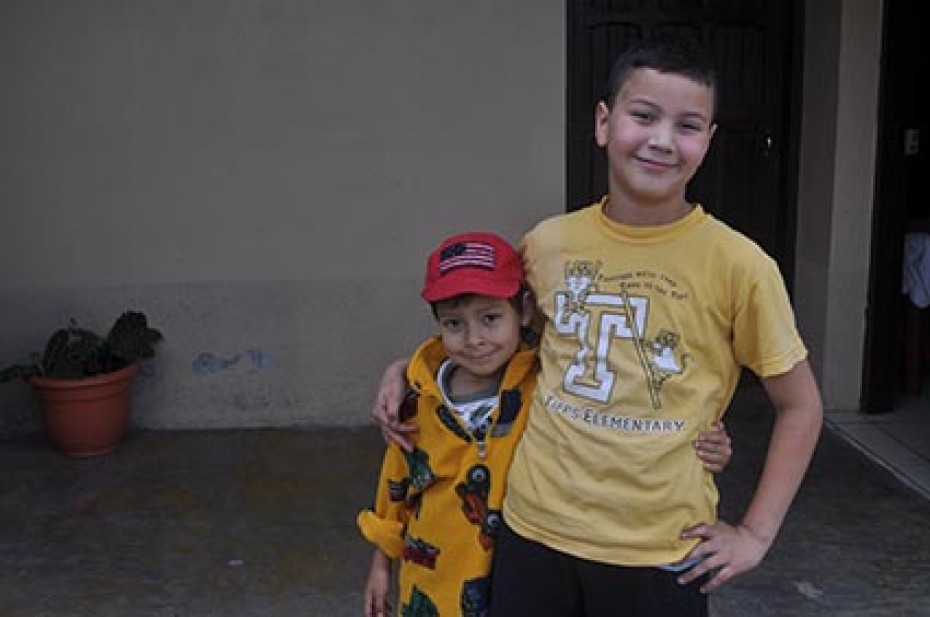
Like most boys his age, Alejandro enjoys playing soccer with his friends and always has time to play with his little brother. He looks forward to continuing his education and one day he wants to become a doctor to help the people of his community.
Continue Reading ›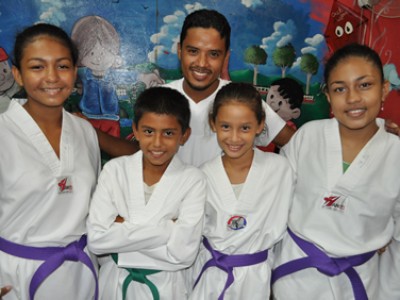
Building Character and Discipline With Taekwondo
El Progreso is the home of a Taekwondo training center that is benefiting more than 250 children through a Complementary Intervention. This extraordinary activity is getting the attention of boys and girls and is a valuable tool that is helping to improve each child’s character.
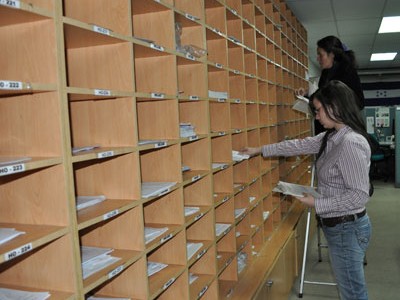
Who Translates Your Letters?
The Honduras Compassion office receives an average of 15,000 to 18,000 letters per month. The handling of so many letters and packages requires a well-trained correspondence team. This group of people takes their job seriously and knows well how to manage the pressure of receiving so many letters. Every one of them is an expert in every process and committed to keeping up the good work.
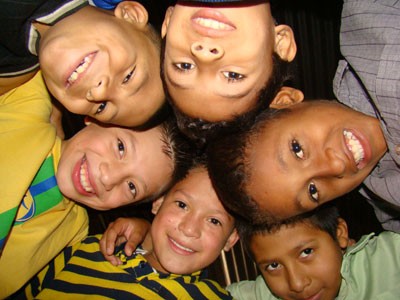
It Comes Down to This (Why We Love the Church)
It all comes down to this: The church is not just essential, it is necessary, imperative to change lives and bring social, spiritual, and physical development in this troubled society. Communities see their congregations as a shelter of love, a ray of hope in the midst of the difficult living conditions, a place where their children receive spiritual values that will make them better citizens in the future.
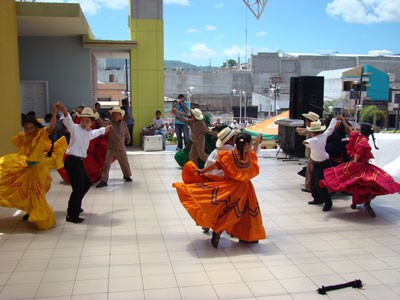
Celebrating Christ and Honduran Culture
One priority of the celebration is to present the gospel through the living testimony of children who are registered in different child development centers. One by one, groups from every center head up to the stage for a special cultural and evangelistic presentation, including messianic dances, mimes, choreography, and songs to exalt the name of Christ.
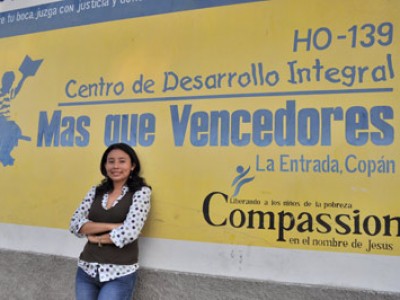
“Look After Your Sisters, and Do Something Good With Your Life.”
Just before passing away Vilma’s mother asked Vilma for two things, to look after her sisters and to do something good with her life. So when the news came to Vilma, a graduate of our sponsorship program, that the Compassion Honduras country office was looking for a Partnership Facilitator for the western region, she was immediately interested and started to pray.
Sponsored Child, Radio Evangelist
It is 6 a.m. in the community of Talanga, just 45 kilometers from Tegucigalpa, the capital city of Honduras, and the radio program for children, “Oasis of Love,” is about to start.
One of the commentators is 12-year-old Olvin, the voice for the children in this special radio program produced by his church pastor.
The radio program is organized by the Iglesia de Dios de la Profecia and intends to spread the message of God’s love to every child, through music, Bible stories, a prayer time, and a question and answer time — an important part of the program in which Olvin has a big participation as he expresses his comments over the questions, and later prays for the children’s needs.
Helping Street Children in Honduras
They live in abandoned buildings, cardboard boxes, parks or on the street. They frequent street corners, markets, gas stations, traffic lights and fast-food chains, meddle with the garbage, or sniff glue. Without a doubt, one of the biggest concerns for the Honduran government has been the rising number of children living in the streets — a tough environment without the care and protection of a family.
Children may end up on the streets for several reasons. They may have no choice — they are abandoned, orphaned or disowned by their parents. Or they may choose to live in the streets because of mistreatment or negligence or because their homes cannot provide them with their basic needs.
The majority of street kids live in the capital city of Tegucigalpa or in the second-largest city of the country, San Pedro Sula. Most fled from homes where abject poverty, violence, alcoholism and familial disintegration are the norm. In order to survive, they steal, dig through trash, shine shoes, or do other odd jobs.
Sadly, an estimated 90 percent of them become addicted to toxic “yellow” glue and paint thinner, which is highly addictive and extremely damaging to the human body, causing kidney failure, irreversible brain damage and, in some cases, death.
The reality is that many Honduran street kids do not make it to their 18th birthday because of the dangerous living conditions that prevail in the country. (more…)
10 Questions With Jeimy Reyes
1. How long have you been in your current position with Compassion Honduras, and what is your job?
Seventeen months. I am an auditor.
2. What are the main responsibilities of being an auditor?
Identifying the strengths and weaknesses of the partner church as well as the challenges it faces.
We look for strengths so that these can be used as a support for other churches. We look for weaknesses and challenges so we can suggest solutions and give the appropriate follow-up in order to correct and solve problems in the churches.
In other words, we hope to provide necessary and timely support to the church.
3. What does an average day look like for you? (more…)
A Shining Future for Rosa
It is 6 a.m. in Honduras and Rosa’s mother has already left to work at a local restaurant. Rosa wakes up and starts her chores around the house.
Rosa’s daily workday begins with making the first round of tortillas to sell, followed by tending to her personal hygiene, the house cleaning, preparing the meals, doing her school work, and finally, getting ready for university.
Adding to her workload is caring for her 2-year-old nephew, Yerson, who is a very active boy. Rosa is in charge of him while her older brother, Yerson’s father, goes to work during the morning. She has to feed Yerson, bath him and dress him, among other responsibilities.
It is a tight daily schedule, Monday through Friday.
As the time passes, Rosa starts to prepare lunch and gets ready to go to the university. Right before leaving for the education center, she goes over her school work and organizes her assignments.
Multiple activities have not impeded Rosa’s determination to do well in her classes. She is committed to honor the generous support of her sponsor, as well as being a voice for other young people in her center who dream of being part of the Leadership Development Program* (LDP).
Finally, Yerson’s father returns home for lunch, and Rosa is free to go. Rosa attends the university five hours daily, Monday through Friday. Her university is the largest education center in the country with approximately 50,000 students.
This bright young girl lives with her mother, who works from 6 a.m. to 6 p.m. to support her small family. This provides the necessary income to cover their monthly expenses.
The absence of Rosa’s father has been difficult for her and still brings tears. Like any child, she dreamed of having a normal and happy family but, unfortunately, the separation of her parents has left much sadness in Rosa’s heart. Her father has never been around and was never interested in being part of his daughter’s life.
For more than a decade, Rosa has been registered in a child development center in the neighborhood of Flor del Campo in the capital city. It’s a big neighborhood that has been affected by the presence of gangs in some areas.
Walking very late at night it is not safe for residents; however, local authorities have taken control of the zone and the situation has improved.
Ever since Rosa was a child, the child development center represented a strong figure in her life. There she made her first steps as a newborn Christian girl. Rosa opened her heart to Jesus, and received peace and comfort which helped her feel secure and loved. (more…)
Sewing Mamas Work for a Better Future
For three months the women met, sitting at their sewing machines, not only learning a skill to help them support their families, but also gaining new hope and faith in God.
This exceptional group of women at Centro de Desarrollo Gracia y Poder student center in Honduras benefited through a workshop carried out through our Complementary Interventions programs.
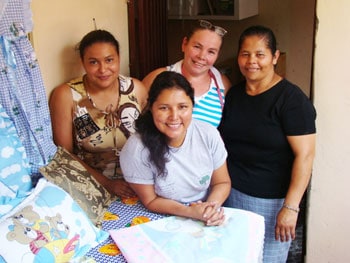
The seed fund was for $3,000 to teach these women, who didn’t know anything about sewing, a skill that could help them generate an income. The training lasted three months, and the participants learned how to create bed comforters and bed sets, curtains and tablecloths.
This activity was a life-changing experience for Gladis A., who didn’t just learn a new skill, but also opened her heart to Jesus through this workshop. (more…)

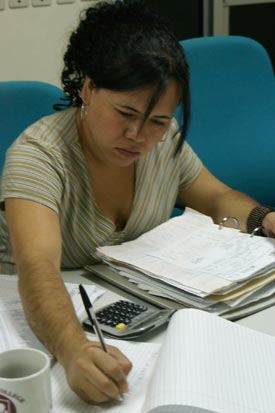 Identifying the strengths and weaknesses of the partner church as well as the challenges it faces.
Identifying the strengths and weaknesses of the partner church as well as the challenges it faces. 
